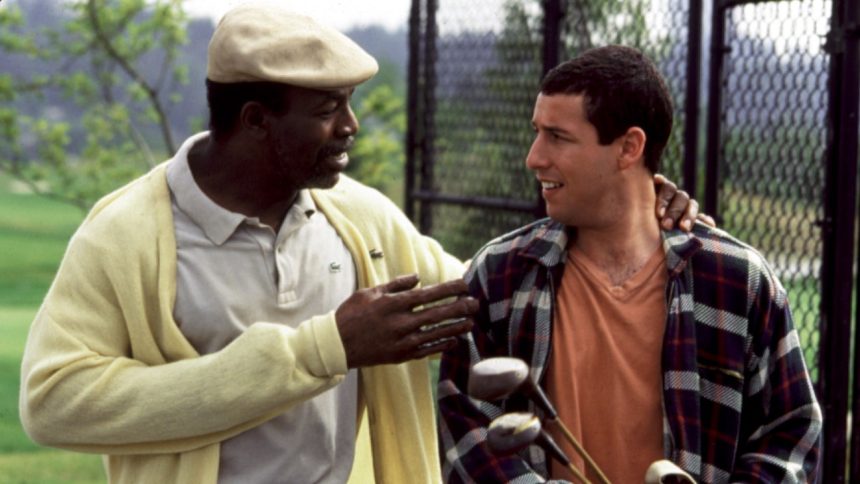‘Happy Gilmore’: THR’s 1996 Review
On February 16, 1996, Universal Pictures introduced Happy Gilmore to audiences. The Adam Sandler starrer went on to gross $41 million and became a cable TV perennial enroute to its belated Netflix sequel in 2025. The Hollywood Reporter’s original review is below:
After his lame, infantile Billy Madison, hopes weren’t exactly high for Adam Sandler’s Happy Gilmore, which makes the end result all the more satisfying. Sandler’s second effort, about a hot-tempered hockey player who swaps his slap shot for long drives and earns himself a berth on the pro golf tour, is amicable entertainment.
A funny golf flick worthy of comparison with Caddyshack, the Universal release packs a goofy charm and should be on course to hit the boxoffice green as long as potential fans don’t view Sandler’s previous outing as too much of a handicap.
The SNL alumnus, who cowrote the script with longtime collaborator Tim Herlihy, gets good mileage out of his endearing side as the title character. When the house of his beloved grandmother (Frances Bay) is seized by the IRS and she has been placed in a Dickensian work house of a retirement home, Happy Gilmore decides to put his wicked slap shot to good use on the Pro Golf circuit, where his miserable failings as a skater wouldn’t be held against him.
You Might Also Like
While Happy’s rather unorthodox approach to the gentleman’s game (hockey jerseys, McEnroelike rants) earns him a growing following that threatens to turn the links into one giant mosh pit, he encounters a formidable obstacle in the form of the smarmy Shooter McGavin (Christopher McDonald), who was all set to steal the spotlight until the arrival of the young upstart.
Not only does Happy have the crowd on his side, but he has the burgeoning affections of officious tour public relations head Virginia Venit (impressive newcomer Julie Bowen) and the coaching of one-handed, former golf pro Chubbs Peterson (a delightful Carl Weathers).
Keeping the juvenile stuff to a happy minimum, Sandler’s gentle innocent with the short fuse works effectively here, as does his handpicked supporting cast, which also includes familiar faces Richard Kiel, Kevin Nealon, Joe Flaherty and an admirably game Bob Barker as Happy’s sparring partner.
Actor-turned-filmmaker Dennis Dugan (Problem Child) directs with a nicely restrained comic touch, letting the funny bits fall where they may rather than giving in to the going trend of pounding every potential laugh into the ground.
The unobtrusive score, by former Devo member Mark Mothersbaugh, essentially plays straightman to the on-screen shenanigans and the whimsical selection of ’70s K-Tel pop schlock ranging from Exile’s “Kiss You All Over” to Pilot’s irresistible “Magic.” — Michael Rechtshaffen, originally published on Feb. 16, 1996.







